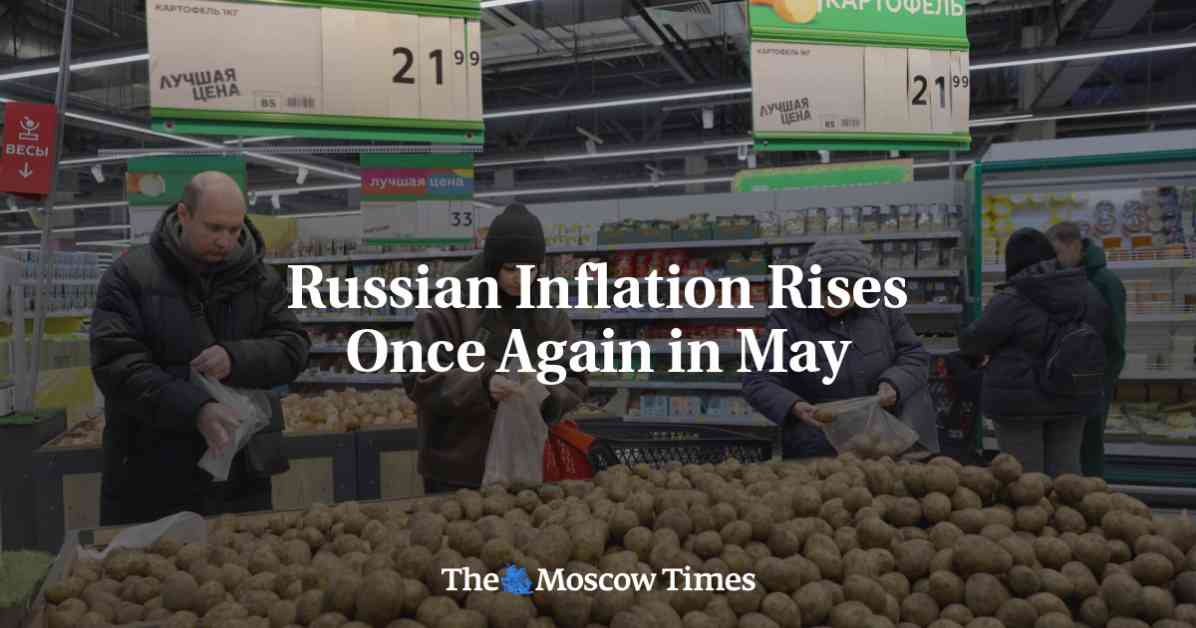In Russia, inflation has increased in May due to the extensive public spending to support the military actions in Ukraine. This surge in government expenditure has helped the Russian economy cope with the Western sanctions imposed on the country. However, it has also led to a rise in prices and labor shortages in various sectors unrelated to the conflict.
According to Russia’s statistics agency Rosstat, inflation reached 8.3% on an annual basis in May, the highest rate since February 2023. This is significantly higher than the country’s official inflation target of 4.0%. The rapid increase in prices has prompted the Central Bank of Russia to consider raising interest rates to manage inflation.
Despite holding the key interest rate at 16% last week, the Central Bank indicated that it might increase borrowing costs in the future if inflation continues to rise. The CEO of state-run Sberbank, German Gref, expressed concerns about Russia’s economic growth being dependent on government spending to boost wages and consumer spending, rather than on investments or productivity gains.
The current situation in Russia highlights the fragile nature of the country’s economic growth and the challenges posed by high inflation rates. The reliance on public spending to drive economic activity may not be sustainable in the long term, especially if inflation remains high and interest rates need to be increased further to control it.
As the Russian economy grapples with these issues, it is essential for policymakers to strike a balance between supporting economic growth and managing inflation effectively. Finding ways to stimulate investment, improve productivity, and reduce reliance on government spending will be crucial for ensuring long-term economic stability and resilience in Russia.















